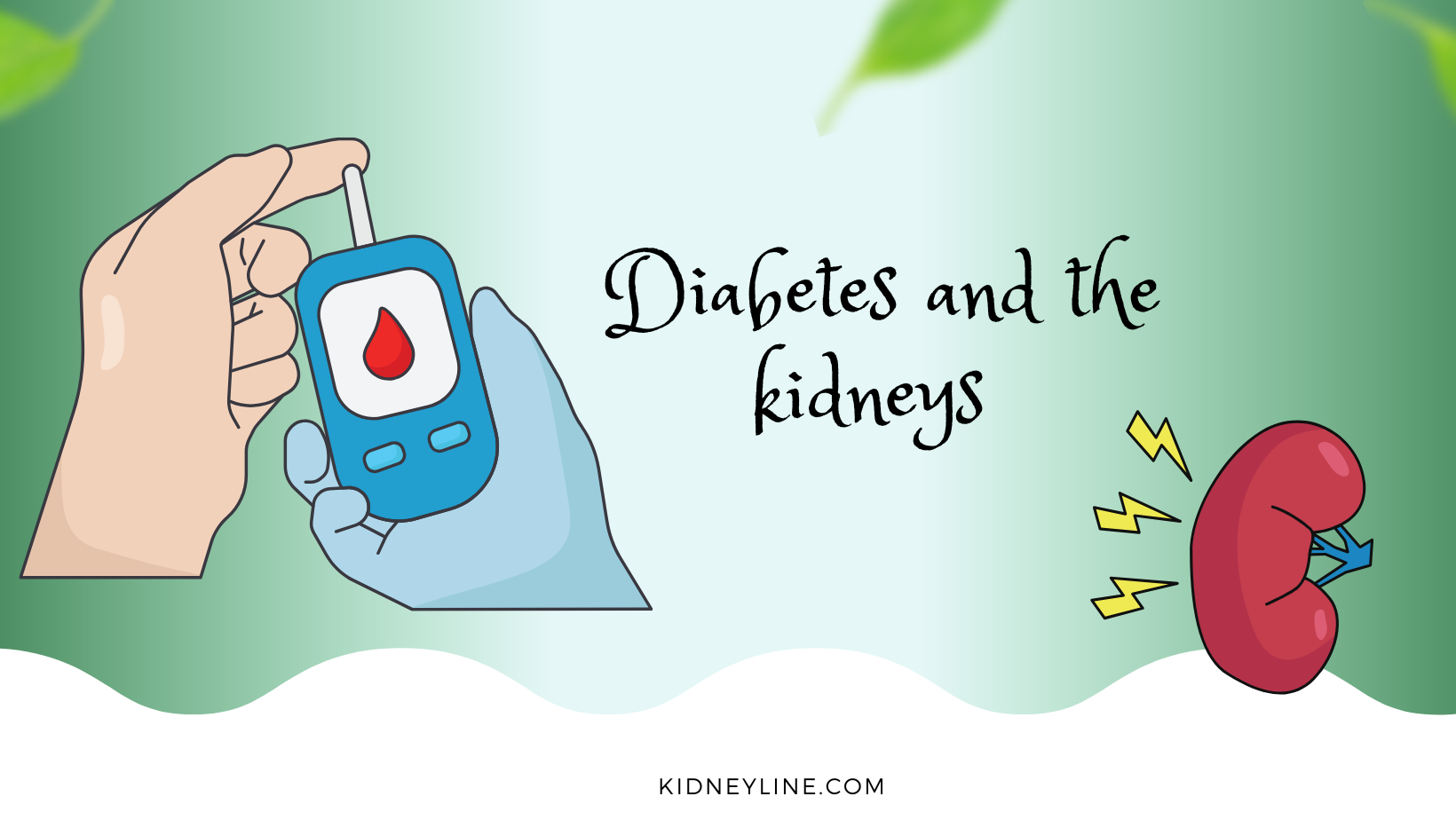If you have diabetes, you already know how important it is to take care of your blood sugar. But did you know that diabetes is one of the leading causes of kidney disease? The good news is there are many things you can do to protect your kidneys and keep them healthy for as long as possible.
Why Are Kidneys Important?
Your kidneys are two bean-shaped organs in your lower back. They clean waste and extra fluid from your blood, balance minerals, and make hormones that keep your bones and blood healthy.
When kidneys are damaged, they do not work as well. This can lead to chronic kidney disease (CKD), which may get worse over time. In severe cases, dialysis or a kidney transplant may be needed. That’s why protecting your kidneys early is so important.
How Does Diabetes Affect Kidneys?
High blood sugar from diabetes can damage the tiny blood vessels in your kidneys. Over time, this damage makes it harder for the kidneys to filter waste. High blood pressure, which is common in people with diabetes, can also put extra strain on your kidneys.
The good news is that controlling your blood sugar and blood pressure can slow down or even prevent kidney damage.

Steps to Protect Your Kidneys
1. Keep Your Blood Sugar Under Control
Managing your blood sugar is the most important step you can take to protect your kidneys. Check your levels regularly, take your medications or insulin as prescribed, and choose foods that keep your sugar levels steady. This will help slow or even prevent kidney damage caused by diabetes.
2. Manage Your Blood Pressure
High blood pressure puts extra strain on your kidneys and can make damage worse. Aim to keep your pressure within the range your doctor recommends. Reducing salt in your diet, staying active, and taking prescribed medicines can help you reach this goal.
3. Get Your Kidneys Checked Regularly
Regular testing is essential to catch problems early. Ask your doctor for a urine test to check for protein, which can be an early sign of kidney damage, at least once a year. Also, have a blood test to measure your kidney function through an eGFR test.
4. Choose Kidney-Friendly Foods
The food you eat greatly affects kidney health. Focus on fresh vegetables, whole grains, and lean proteins while limiting salty snacks, processed foods, and sugary drinks. If you are unsure about what to eat, a dietitian can help you create a plan that protects both your kidneys and blood sugar.
5. Stay Active and Maintain a Healthy Weight
Exercise not only helps control your blood sugar but also keeps your blood pressure in check. You do not need to do intense workouts; even light activities like walking or gentle stretching on most days can improve kidney health.
6. Avoid Smoking and Limit Alcohol
Smoking damages blood vessels, including those that supply your kidneys, and alcohol can raise both blood pressure and blood sugar. Quitting smoking and drinking only in moderation—or not at all—can reduce your risk of kidney damage.
7. Take Medicines as Prescribed
Some medicines, such as ACE inhibitors or ARBs, specifically help protect your kidneys. Always take your medications as instructed and do not stop them without speaking to your doctor. Also, be careful with over-the-counter pain medicines, as some can harm your kidneys when used often.
8. Stay Hydrated but Be Careful
Drink enough water to stay healthy, but follow your doctor’s guidance on how much is right for you. Avoid sugary drinks and sodas, as they can raise your blood sugar. Along with hydration, make sure to keep to your overall kidney care plan and attend all scheduled appointments.
Other Tips to Keep Kidneys Healthy
Managing stress, getting enough sleep, and being mindful of how you feel all play a role in keeping your kidneys strong. Stress and poor sleep can raise blood sugar and blood pressure, so taking time to rest and relax is part of your kidney care.
When to Call Your Doctor
See your doctor right away if you notice swelling in your feet, ankles, or around your eyes, if your urine looks foamy or you see changes in how much you urinate, or if you feel very tired or weak. These may be signs that your kidneys need extra attention.
Takeaway
Having diabetes does not mean you will develop kidney disease. By controlling your blood sugar and blood pressure, eating the right foods, staying active, and following your doctor’s instructions, you can protect your kidneys and keep them working well for many years. Most importantly, always tell your healthcare team how you feel. They can make adjustments to your treatment if needed to keep you healthy.
💬 Remember: early care makes a huge difference. Small steps every day can protect your kidneys in a big way!




